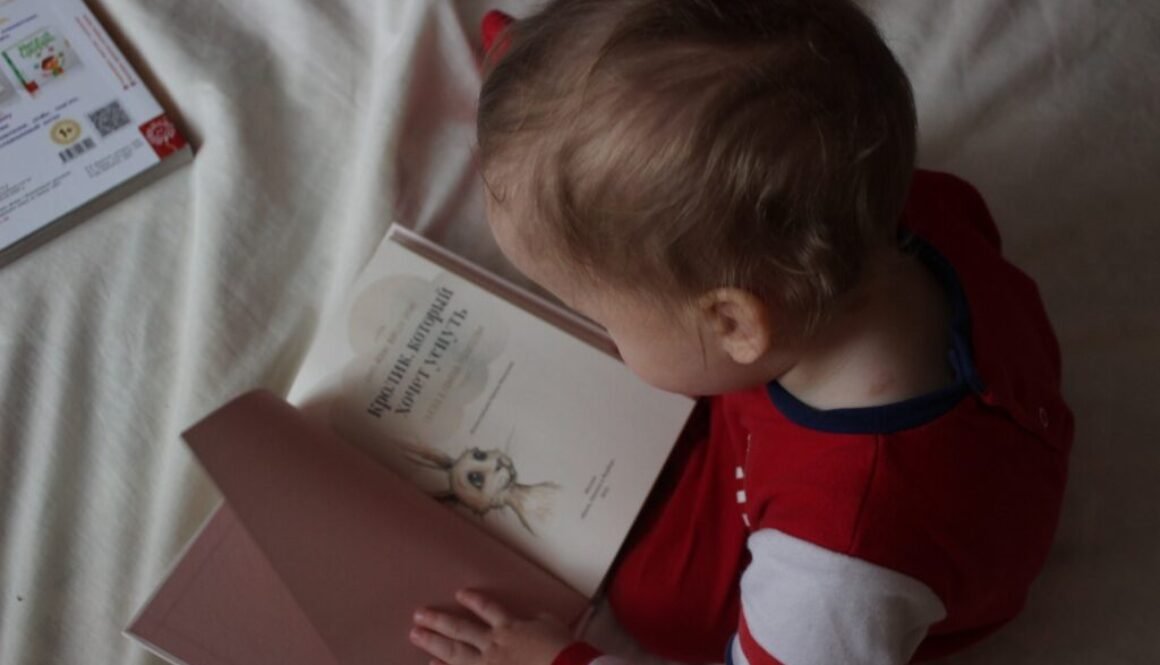
Parenting Power


India’s National Education Policy 2020 presents students with the most flexible education system in the world.
The National Education Policy India 2020:
Why more and more parents tend to change school for their kids in India?
Indian Parent changing their children school has become more common than ever, one of the reason why parents take such a decision is because they are not able to clearly observe what the child learns from school, parents do not have tools to quantify this, in fact it is very common in Indian schools teachers to give the following feedback to parents – “your child does not focus, he/she does not wish to write or read and even pay attention to what is being taught in the class”, but what can parents do if they are told to follow a curriculum which itself is based on old pedagogy standards and does a poor job in sparking a learning interest in a child or even helping a teacher to effectively deliver a fun class. National Education Policy 2020 India at its core given maximum flexibility to students.
It is natural for parents to seek other school alternatives, they feel that other options they can hope to see a positive difference in their child, attending the next best school should increase the learning curve, but in many cases this does not happen as in true sense the problem is with the education system in itself, if anything it is a vicious circle of hit and try, changing school and hoping that it would be the right FIT for the child is a risky strategy. Another reason to change school is more non academic, such as getting a different environment for the child and expecting that learning curve will drastically improve, perhaps it has to do more with the method of teaching, structure and process of learning and also the quality at which children are taught. National Education Policy 2020 is a new education system in India by the federal government which addresses K-12 student issues.
Shouldn’t parents be informed about what will their child will gain if he/she is sent to a given school from the age of 3? Demographics (nearest location) plays an important role in deciding which school your child will attend, the nearer the school to your location, the more convenient it is for the parent (and there is nothing wrong with that), but there is no way to know (expect from reviews and other feedback from other parents) if the school will be providing quality education to a young kid of not. But helpless parents have no option they anyhow get their child enrolled in the nearest school. However such a decision would be successful if families could observe their children building upon intelligence, learning, skills etc. So is it possible to keep your young ones close to you from a very young age and still be able to qualitatively educate them? Can families get to see schools and colleges imparting international quality at every level within their district? This seems like a dream come true for many families, life would be much easier if this were to happen, and the next generation would be much smarter and productive, transformation in core education policy is required (which is what NEP fulfills) more than building upon infrastructure or building more and more school within one’s vicinity, I suppose National education policy 2020 does exactly that and much more.
The National Education Policy (NEP) 2020 brings about changes to the existing education policies from the very bottom & it is important for families to understand what it offers to their kids & why its successful implementation will contribute towards building a bright future for the next generation.
What will change in the Schooling System? [10+2 will be replaced by 5+3+3+4]:-
FOUNDATIONAL STAGE: Ages – [3-8], Completely based upon Activity Learning & it is divided into 2 parts:
A. 3 years of Preschool or Anganwadi &
B. 2 years of Classes in 1st and 2nd grade at primary school.
IMPORTANT TO CONSIDER:
- Under foundational stage families should understand that there won’t be any emphasis on reading, writing, course subjects, its just plain old FUN BASED LEARNING, so if your child is not writing you do not need to stress out or become insecure that he/she will fall behind, which is a common stress in most of the Indian families.
- Look at the activity based curriculum (Curriculum framework India will see in 2021) that the school offers, what will your child learn out from them.
- Observe positive changes in your child till the age of 8.
- Do not force your child to learn about mathematics, let yourself and the child be free of concerns on what learning is left out, at home also involve them as much as possible in an activity, notice their enthusiasm and involvement at a given activity, just give them lots applicable & variety of learning activities.


PREPARATORY STAGE: Ages – [8-11], Classes 3-5!:
IMPORTANT TO CONSIDER:
- In these 3 years children will be introduced to standard way of speaking, reading, writing, languages, science, mathematics, art etc.
- Parents should monitor their child’s interest at each subject and help them academically at this stage.
- This stage forms the basis for learning about a subject and this can be considered as “getting your basics right”.
- Children when in class 3 & 5 will attend exam and not in class 4.
- Look out for schools with low teacher to student ratio, children tend to learn better with personalized attention.
- It would be smart to monitor their academic progress sharply in this stage. Helping them in this stage will build a strong foundation and allow them to smoothly progress in the coming stages.
- Up till this stage NEP gives importance to instruction medium to be mother tongue along with regional languages, however no language will be imposed on children.
- This brings about an opportunity for your children to be multi lingual.
- Counselor and social workers would be deployed to ensure student’s mental health.
- All types of counseling services will see a rise in education system.
MIDDLE STAGE: Ages – [11-14], classes 6-8!
IMPORTANT TO CONSIDER:
- These 3 years, children would be exposed to abstract concepts such as Humanities, social sciences, maths, sciences etc.
- Exam would be in class 8 and not in class 6th and 7th.
- In class 6th is when coding would be introduced to children, this will build upon their logical and critical thinking.


SECONDARY STAGE: Ages – [14-19], Classes 9-12! This stage has 2 parts:
- 9th and 10th will be 1st phase here.
- 11th and 12th will be 2nd phase.
IMPORTANT TO CONSIDER:
- Arts, Science and Commerce traditional categories will be terminated.
- Children can opt for “inter-disciplinary” curriculum, for example, chemistry with fashion etc.
- Board exams will be in 10th and 12th however they would be easier, monitored by the body known as PARAKH, conducted twice a year, two attempts allowed and would be divided into descriptive and subjective.
What will change in the Higher Education System?
Post 12th class, candidates can pursue a 4 year multi-disciplinary bachelor’s degree with multiple exit options & the same will be implemented as follows:
You get a Certificate if you complete 1 year of bachelors degree.
You get a Diploma if you complete 2 years of bachelors degree.
You get a Bachelors degree after you complete 3 years of bachelor’s study.
Finally you get a Multi-Disciplinary Bachelors degree after 4 years of study.
WHAT DIRECT BENEFITS WILL STUDENT’S GET UNDER NEP?
- In the traditional system parents are too focused on expecting good grades from their children, for them the definition of academic success is to get straight A’s, under NEP kids would learn via innovative activities which would be fun and so it is likely that kids would be happier, less stressful and they will not encounter nagging from their parents, which they do as of now.
- Activity based learning has proven to bring about problem-solving and independent thinking within children, kids learn faster and with high interest.
- Kids learn skills such as being socially active & collaborating, these benefit in the long run in a professional life.
- From an early age kids will have a chance to develop better communication with their parents as they will not force them to follow a strict reading, writing routine till the age of 8.
- Exams would only be in Classes 3, 5 and 8, which will give kids enough gap on exam stress.
- The board exams will be easier than the current format and this itself will not subject kids thought the Board exam trauma.
- At age 11, children would be subjected to Humanities and this will help them find fit in society.
- Under class 6 vocational skills would be part of the curriculum, this means more hands on and practical learning for children. (10 days internships with local trades and craft will be allow children to reason the value of current education system).
- The inter-disciplinary curriculum during 9-12 will give an advantage to kids to be eligible for more variety of Higher education courses, even overseas.
- Under Higher education system the option to exit out with a specific type of certification after each year will empower students to rethink their career route and make informed decisions.
NEP will literally transform the current education system in India, it also focuses on making teachers better at teaching and hence we will likely see children learning better and be successful at what they pursue as a career, but Parents need to be active participants under this Policy, they need to realize what NEP offers to their child, so that they can make informed decisions for their kids.
Satyam Khanna
Educational & Immigration Consultant
Home

A REPORT – PARENTING STYLE & ITS EFFECTS ON KIDS!
This is a report on Parenting Styles & Its effects on Kids!







THE INDIAN TEEN LIFE = MOM + POP + SELF + A DIGITAL SELF!
Current Indian Teenlife
The current Indian teenage culture is not much different than that of a teenager from developed nation, simply because majority of indian teen population who are potentially born after 1997 hold a smart device in their hand, they have a digital life, a universe which comprises of secrecy, strong security, even a language of its own.

Teens have their own universe, teens who have a digital life can also groom a lot, they become efficient in Information technology, they even groom in certain areas (may be increase in intelligence) when spending more time in front of the screen, but then it comes along with some drawbacks as well.
Mom’s are concerned, majority of them are not very tech savvy, this population of mom’s often are the ones who are not the cool types, they wish to instill some sense (which they feel is the real sense) in their child, they mainly try to communicate: – keep up with your grades, when ever I see you I see you on your phone, why are you not eating properly etc etc.
Father’s and Indian teen life
Fathers step in the hard way, they want to get things done and the then again those who are not cool types, they come down very harshly on these teens, their data points are derived from what mother tell them. Its a mess and in majority cases the teens and their mom’s do not get along well.
The teen takes suggestions, advise, routes, future prospects and everything from what the digital universe has to say! This universe is their best friend, it’s their counselor and their place of tranquility.
The Nagging Society that Indian teenlife is engulfed in
Parents are driven by the society they live in, they are influenced via close and distant relatives, friends of friends and even acquaintances of friends of friends, be it following a new tradition or changing overall perspective with regards to taking decision.
These parents did not grow up with a digital world in their life, information from their surroundings plays an important role, parents of teens wish to make informed decisions more than ever and not base out educational & life decisions of their child on what their friend’s children accomplish but such children at times tend to set the benchmark of academic success and often become the comparison models to most kids.
With inaccurate data, the parent is bound to make wrong decisions (as the teen validates out rightly), no matter how hard they try but they will get hit by the “blame bomb”, its their fault and to a great extent it truly is!
Parenting Systems and Indian teenlife
Parenting lacks proper organized systems, steps to manage their lives, to monitor child continuously, to minimize the noise, to understand the digital universe language, to be ignorant of how effective communication has to be done and to identify their child’s overall DIGITAL SELF!
Lack of smooth communication among Indian teenlife
Ok, so to parents, Relax and build up your focus, see if the child has issues with regards to social skills, executive functions or academics, observe any issues that you see! It is often that there is no issue with the child and that it might only be the unknown of the DIGITAL world and the same is not interpreted correctly by the parent.
Accepting the DIGITAL SELF of your child may not be bad after all! HOWEVER if you, as a parent see that you child is glued to his mobile & video gaming console or electronic device and it is hindering with his daily tasks then he/she might be addicted, in that case get some knowledge from the below link.

WHAT IS BEHIND A SUCCESSFUL TEEN? SIMPLE – A UNITED PARENT!
Covid 19 compelled teenagers to spend more time with parents, schools were shut, outings were limited, isolation was prominent but this should have given more time for parents to interact with their teens, this period should have been an opportunity to connect, discuss, reason and build upon a child’s future! Some parents console themselves that their child is not able to have any activity, no social life (apart from e-life), so they are anyhow not cheerful and hence cannot indulge in any sort of planning let alone 10 minutes talk.
Some teenager just won’t listen or respond to their parents, how can parents really fulfil their parenting responsibilities, when there
is just no communication at all? Irritation, Anxiety, stubbornness, pride, over-confidence, being lazy, not sticking to a healthy diet, being hyper, unproductive behavior and above all COMMUNICATION GAP is what many parents and teenagers struggle to overcome. So what could be
some factors which might widen the communication gap?
A. THE BLAME GAME:
Teen BLAME Parents and Parents BLAME Teen! Heck – Parent BLAME each other….Grandparents also get a piece of it at times…..It is very common for Parent to GIVE UP on their teens, setting aside couple differences and UNITING in their thought process will DEVLOP CHANNELS OF COMMUNICATION with their TEEN!
B. UNENDING PARENT’S PETTY FIGHTS:
It is common for parents to argue, when a common ground is not achieved by parents and they are not able to work out their differences, the child learns and learn well from a young age, petty fights are not rare, they become part of the daily lifestyle. Teen at times may respond on a serious topic in a petty fight tone!
C. MOTHER’S FEAR & ANXIETY:
If my child does not get good grades, does not do well, what will the society feel? What will relatives say? He has to generate a good name for himself, if this is not achieved then nothing is accomplished. Concerns with mothers can be so high that all they talk to their teens is on the topic of academics, success, life skills and examples of other kids.
D. FATHER HAS NO TIME:
Factory, finances, liabilities, banking, notices, wages, expenses, meetings……….no time at all to get involved as the burden of lively
hood is on father’s shoulder. Great Excuse!
E. THE UNHEALTHY FOOD – (Mr. Zoomato & Mr. Swiggy):
The hyper food factories, available at low cost, a click away, out goes healthy food from kitchen, when the body is busy digesting adulterated unhealthy food, then what time will the mind have for any discussions on building relationship and working towards quality communications.
F: THE UNKNOWN TEEN PROBLEM:
No one knows what it is, but this unknown is the reason why the child HATES his family members, specially the mom!
Parents are the first level Counselor, in a busy and noisy data driven world, they cannot afford to be uninformed, building up communication is the best way to counsel any child, but this can be effectively achieved when done as a team.
